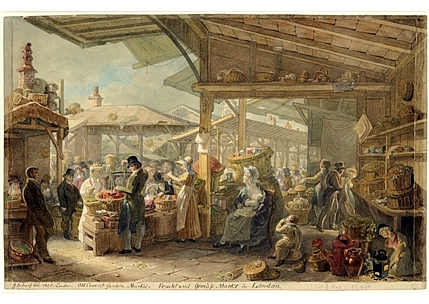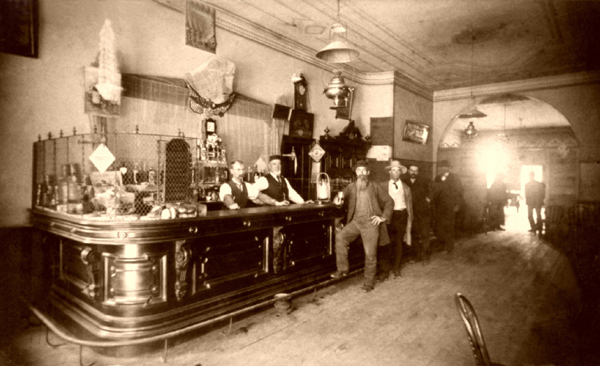‡‡ CHAPTER IV — LAND VAN MELK EN HEUNING ‡‡
Cape Flats, British Cape Colony
Sunday, July 7th, 1861
It had been some nine hours since they had left Cape Town that morning after the earliest of the church services had come to a conclusion. Jacques had said jocosely that they should have left Aaron behind, as the Anglican service at Saint George's had lasted thirty minutes past the end of the service at the Dutch church; Aaron had found this somewhat less than amusing, but the two old Boers had gotten their laugh from it sure enough.
The light of the day was beginning to falter over the Cape Flats as they rounded the north side wide base of what the two Boers called the Papegaaiberg. It wasn't a particularly large mountain to see it, compared to the Drakensbergs in the distance, but it cut a nine-kilometre swathe through what would have been the most direct path to Stellenbosch. Over the foot of the mountain, the town was now becoming visible in the distance, on the far side of which rose three ridges of peaks — the Simonsberg, Jonkershoek, and the Drakenstein. He had never imagined that the mountains of Africa would be peaked with white snow, but there they stood, white as the hide of his back.
By this point in the journey, Aaron had a hand firm on the side of the oxwagon as they went. Unaccustomed to traversing such distances on foot, his legs felt as though they would collapse beneath him and his feet as though he had stepped in hot coals. He did in fact lose his footing at least once, when one of the wheels of the oxwagon dropped into a dassie hole and the wagon consequently lurched towards him.
Bertus gave a lash of the bullockwhip, redirecting the ox-team slightly to the right, around the edge of a pond surrounded by unmolested trees — a few survivors of the landtaking by the farmers over the years. Now to their left began a fence, and on their right one also at the far end of that pond with its trees; on the opposite sides of those fences lay fallow fields, and in between them a crude road (nothing more than wheel ruts with grasses growing over them). This went on for about a kilometre or so, before ending in a gate — on the other side of which lay a few snow-white buildings framed with trees. Finally, Aaron thought to himself.
"There it is," shouted Bertus from up at the head of the ox-team. "Mooihoek, our stop. 'n Ware land van melk en heuning as daar ooit een was."
"Good to see it," replied Aaron. Just how good, you may never know, he thought. The old Boers seemed to have no trouble with the journey, both walking as tall and as strongly as when they'd set out from Cape Town that morning. They walked towards the front of the ox-team, chatting to each other in the Dutch about all manner of things. Aaron tried his best to pick out what little he could recognise of their strange dialect; as he became accustomed to the difference in accent, the words fell into place, but even this was an arduous process, for whatever changes these people had made to their Dutch over the last two centuries, they seemed to have had the sole and singular goal of creating an unbreakable cipher with which to confuse outsiders.
As they drew nearer, the life of the farmstead became more visible, even in the dimming light. A lamp hung above one side of the fence gate, guiding them in. Those minutes between here and there dragged along, as they do when the end of a long journey or hardship is in sight — Aaron simply wanted to collapse, to end for the night, and perhaps to eat something that wasn't smoke-dried or rock-hard.
When finally their approach had ended, Jacques stepped forward to open the gate. They were immediately met with a shouted greeting from off by one of the smaller sheds:
"Goeienaand, m'nere!" shouted a spindly and bow-legged old coloured man. He would have been incredibly tall if not for his hunched stance. "Welkom tuis!"
"Dankie wel," replied Jacques. "Als wel by julle?"
"So wel as wat dit was toe jy gegaan het," replied the man.
"Baie goed," said Jacques. He turned back to Aaron, and said, "That man is called Claas, short for Herculaas. He works for Bertus."
The front door of the house opened, as the inhabitants thereof were most certainly alerted to their presence by the commotion that Claas had raised. Out came an older woman of lesser stature, wearing a Dutch cap and a stonely stern expression that reminded Aaron somewhat of the Queen. With slow and deliberate strides, she made her way the maybe-hundred-metre distance from the house to the gate, approaching Bertus. As she closed the last few metres, the sternness of her countenance melted away, as she placed her hands on Bertus's shoulders and gave him one curt kiss.
"Welkom tuis, liefde," she said, moving aside so that he could guide the wagon into the yard.
"Dankie mooi, my bokkie," he replied. Bokkie wasn't a term that Aaron had ever heard in European Dutch, but he could guess that it was some sort of term of endearment easily enough. Bertus halted the wagon in the open space, took off his hat, and then kissed her once more. "Liefde, ek wil jou graag bekend stel aan m'neer Rice" he said, indicating Aaron with one hand. "Hy's 'n Engelsman wat vir ons hier op die plaas wil werk." Once more he was referred to incorrectly as an Englishman, he understood, but he was growing accustomed to the title. Aaron stepped forward, anticipating his introduction. Bertus turned to Aaron, placing his arm around the woman, and said, "M'neer Rice, this is my wife, Rowena."
"Pleasure to meet you, M'vrou." said Aaron, removing his hat.
"Papa!" the voice of a young woman rang out from the house door. Aaron looked over to see a young woman — perhaps nineteen or twenty years of age — standing in the doorway. She, like Rowena before her, stepped out to cross the yard, although her stride was much more lively and with a longer and more vivacious gait as she approached. "Papa, welkom tuis. Hoe was julle reis?"
"Goed gegaan," replied Bertus. "And you're just in time that I can introduce you to Mr. Rice," he said, once more indicating Aaron. "An Englishman who will be working for us.
The Wily Farmer's Daughter
"An Englishman?" she questioned, eyeing him up and down. A look of disdain crept across her face as she did. "Haven't we got enough Englishmen as it stands, then?"
"Fortunately, miss," Aaron began —
"Isabeau," she cut him off. "En as jy met my wil praat, moet jy praat met my in Duits of glad nie."
"Ey, hou op!" snapped Bertus.
"As jy wil, Papa," said Isabeau with a dismissive shrug. She turned back towards the house and walked away, looking back at Aaron with disapproval over her shoulder for an instant as she went.
Aaron was taken aback by her fervent and fiery hostility when she learned of his nationality. He had certainly expected remnants of the old Anglo-Dutch rivalry to surface, but he had not seen it in Cape Town or even in the actions of the old Boers with whom he travelled. "Does she hold some ill-will towards the English, then?" he found himself asking half-reflexively.
"Her elder brothers have gotten ideas in her head that Britain means to come and take our lands and our homes from us," explained Bertus, scratching his head and looking off in the distance. "I've got three living sons before her, and all three of them packed up and left for the Transvaal when they came of age."
"I assure you, sir," Aaron said reassuringly, "I mean to do no such thing."








